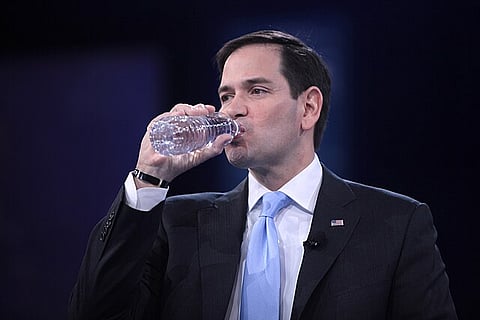

U.S. Secretary of State Marco Rubio will attend ASEAN meetings in Kuala Lumpur from July 8–12, marking his inaugural Asia trip as America’s top diplomat. The visit aims to reaffirm U.S. commitment to a "free, open, and secure Indo-Pacific". Yet the diplomatic mission collides with President Trump’s simultaneous imposition of 25% tariffs on Japan, South Korea, and host Malaysia, plus 40% duties on Laos and Myanmar, all ASEAN members.
Rubio faces immediate pressure to address ASEAN anxieties over Trump’s trade policies. Hours before his departure, Trump threatened BRICS nations, including ASEAN’s Indonesia with an extra 10% tariff for "anti-American policies". While Vietnam secured a tariff-reduction deal last week, Japan remains a stalemate despite being Washington’s top regional ally. Analysts note Rubio must navigate ASEAN’s "hunger for reassurance" that the U.S. prioritizes Indo-Pacific stability amid economic coercion.
Critics highlight Rubio’s failure to visit Japan or South Korea since taking office, a six-month gap undermining U.S. claims of Indo-Pacific focus. South Korean envoy Wi Sung-lac rushed to Washington this week seeking tariff exemptions, while Japan’s PM Shigeru Ishiba publicly refused to "easily compromise". Rubio’s itinerary notably excludes both nations, though Japanese media speculate he may add stops post-ASEAN.
The ASEAN summit will see Rubio share space with Chinese Foreign Minister Wang Yi and Russia’s Sergei Lavrov, symbolizing competing regional visions. U.S. goals include rallying ASEAN against China’s South China Sea expansion, previously countered by U.S.-led naval exercises and freedom of navigation operations. However, Trump’s tariffs risk fracturing unity: Malaysia and Indonesia, both BRICS-linked economies, face punitive measures despite strategic partnerships with Washington.
Rubio’s mission extends beyond damage control. He will advocate "reciprocal trade", echoing Trump’s demands for rebalanced partnerships while promoting security collaboration like maritime defense initiatives. Success hinges on offering tangible alternatives to Chinese investment, such as the Luzon Economic Corridor infrastructure project in the Philippines. Yet with tariffs hitting ASEAN within weeks, Rubio’s reassurances may ring hollow without White House flexibility.